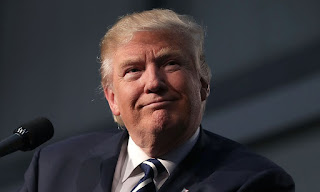Republican Donald Trump extends a strong lead over Democratic Hillary Clinton in a historic clash for the White House on Wednesday as results from the United States presidential election pour in.
As both candidates go head to head, the world waits anxiously for a final announcement on who the winner of a prolonged and bitter campaign for the presidency will be.
Clinton has 215 Electoral College votes; Trump has won 244 votes, according to a New York Times count. It takes 270 votes to win.
A deeply divided electorate of about 200 million Americans were asked to make a momentous choice between electing the nation's first woman president, or handing the reins of power to a billionaire populist who has upended US politics with his improbable outsider campaign.
Republicans retain control of Senate
Republicans retained control of the United States Senate, with 29 out of 34 results called by major TV networks, including one pickup by the Democrats in Illinois.
A handful of extremely tight Senate races were too close to call, while the networks declared that Republicans, as expected, retained their majority in the House of Representatives.
The outcomes in both chambers will help determine how hard it will be for either Democrat Hillary Clinton or Republican Donald Trump to get things done as president.
The following are facts on the stakes and races to watch:
US Senate, 100 seats. Senators serve six-year terms.
A third of the Senate is up for re-election every two years.
Procedural rules in the Senate mean 60 votes are needed to advance major initiatives.
Republicans entered the election with 54 seats, led by Kentucky's Mitch McConnell, versus the Democrats' 44 seats and two independent seats.
Dueling Manhattan parties
At the venue where Trump will hold his planned victory party in New York and in the bar at Trump Tower, his home and headquarters, supporters were upbeat, expressing confidence that he would stage a major political upset.
Cheers erupted when one network update showed Trump slightly ahead in Florida.
"This is like a football game. I'm going to have a heart attack," said 76-year-old Mike Garcia, a Republican from Pennsylvania.
Across town at the huge conference center where Clinton hopes to hold her victory rally, supporters were just as giddy.
"Hillary's going to win and we're going to unite America," declared Jade Wiederholt, a 43-year-old marketing consultant from New York.
Clinton tweeted: "This team has so much to be proud of. Whatever happens tonight, thank you for everything."
She and her husband, former president Bill Clinton, huddled in a hotel near the venue to prepare a victory ─ or concession ─ speech.
'I'll do the very best I can'
Earlier, the Clintons voted near their home in Chappaqua, before emerging to shake hands and chat with the crowd.
"So many people are counting on the outcome of this election, what it means for our country," the 69-year-old former secretary of state said. "And I'll do the very best I can if I'm fortunate enough to win today."
An exit poll by CNN however found that only four in 10 voters were optimistic that Obama's successor would do any better than he has during his two terms in office.
Trump, 70, cast his ballot alongside his wife Melania in a Manhattan school gymnasium.
"Right now it's looking very good," he told reporters ─ paying no heed to protesters who welcomed him with chants of "New York hates you!"
Tough contest
The 2016 race was the most bruising in modern memory.
Obama's election eight years ago as the nation's first black president had raised hopes of uniting Americans, but the current contest has only highlighted the country's divisions ─ and the fact that voters are not necessarily happy with their options.
Exit polls by ABC News and NBC News found that both Clinton and Trump are seen as untrustworthy by majorities of voters, while most find Trump's temperament unpresidential.
Most voters told ABC that the economy was the most important issue or them, but were evenly divided on which candidate would handle it better, so the final result may come down to turnout.
The exit polls, and reports coming in from polling stations around the country, suggested that Latino turnout was high and that this would favor Clinton over the anti-immigration candidate, Trump.
Trump's campaign spooked world markets seeking stability after the recent global slowdown, but stocks rose for a second straight day Tuesday on the expectation that Clinton will prevail.
At the closing bell, the S&P 500 closed up 0.4 per cent. But Asian markets were open as polls closed and the situation was much less clear cut, with equities falling after initial gains.
'Big-hearted'
Early voting has shown particular enthusiasm among Hispanic voters, an increasingly influential voting bloc whose strong turnout could shape the results.
Clinton has urged citizens to vote for a more "big-hearted" America, while Trump has vowed to tear up US trade deals, control immigration, restore manufacturing jobs that moved abroad and to: "Make America great again."








